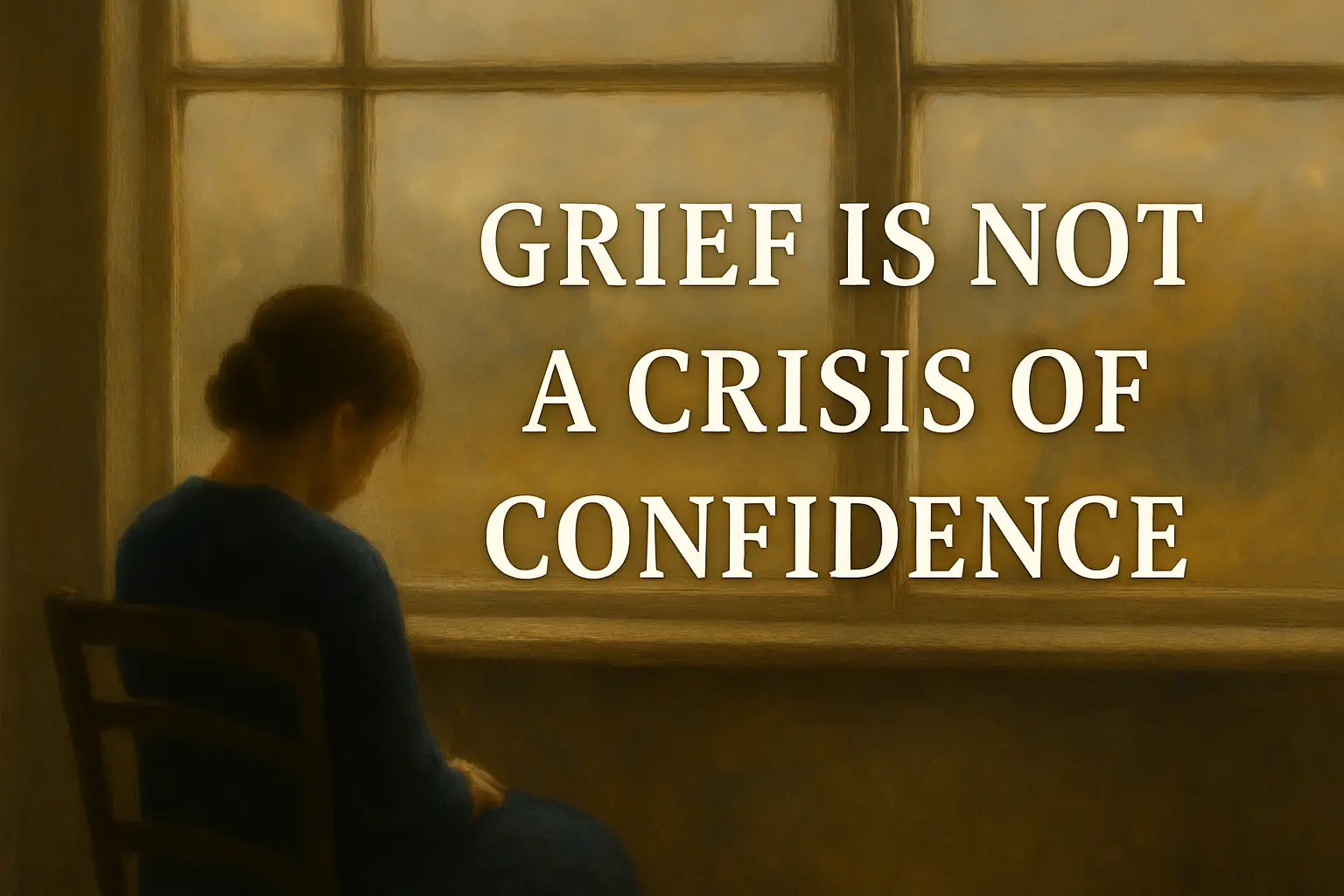Grief Is Not a Crisis of Confidence: Reframing Loss as Love, Not Weakness

Throughout our life experiences, we are often taught to respond to grief as though it were a crisis—something to be stabilized, soothed, or moved through quickly. But here’s a truth we rarely speak aloud: grief is not a crisis of confidence. It is not a sign that someone is broken, unstable, or incapable. Grief is a normal human response to loss, and it deserves space, not suspicion.
Whether we’re offering grief support to a loved one, navigating our own grief journey, or working in a professional role supporting others, we must begin to challenge the harmful belief that grief reflects weakness or dysfunction. In reality, grief is a sign of connection. It means we’ve loved deeply—and now must find a way to live in the absence of that love’s physical presence.
The Misunderstanding of Grief
Too often, grieving people are met with quiet concern about their ability to function, to stay on track, to “get back to normal.” There’s an unspoken fear that they may fall behind or need more support than the system is willing or able to provide. In the workplace, this might show up as subtle pressure to return quickly or meet the same performance benchmarks. In schools, it can manifest as lowered expectations or avoidance.
But coping with grief doesn’t mean someone is falling apart. It means they are doing the hard, brave work of holding sorrow and strength at the same time. They are showing up, every day, with a heart that hurts—but still hopes.
But grief doesn’t mean that someone lacks strength. It means they loved, they lost, and now they are learning to carry that loss.
Reframing the Narrative
As a counselor and someone who has walked through an intense grief journey, I know firsthand the power of language and presence. We often think we need to “do” something to help someone in grief—offer solutions, cheer them up, get them back on track. But what grievers truly need is acknowledgment, not advice.
Grief and loss support isn’t about removing pain; it’s about making space for it. It’s about bearing witness to sorrow without rushing it out the door.
When we approach grief as a teacher instead of a threat, we begin to see how it can foster emotional depth, compassion, and resilience. Grievers are not weak; they are wise. They have learned what matters. They have learned how fragile and beautiful life really is.
Supporting Without Stigmatizing
Grief is not a crisis of confidence—it is a continuation of love. When we honor that truth, we help process grief in healthy, hopeful ways—without shame, fear, or pressure to move on too soon.
Here’s how we can shift our collective approach to grief:
- Normalize conversations about grief. Don’t treat it as taboo or a temporary illness. Grief isn’t linear, and it doesn’t have an expiration date.
- Avoid rushing people back into routines. Allow space for rest, reflection, and changes in energy and capacity.
- Affirm their strengths. Remind them that grief hasn’t diminished their value or capability.
- Provide flexible and lasting grief support, especially for populations often overlooked, such as widows or bereaved parents.
- Educate communities on how to offer compassionate presence instead of avoidance.
- Help others to support their grieving loved ones without over-pathologizing their behavior.
Grief, when honored, becomes a powerful teacher. When dismissed or rushed, it can become a silent burden.
Grief Support for Widows: A Unique Path
For many, especially those seeking grief support for widows, the journey can be uniquely complex. The loss of a spouse isn’t just emotional; it’s structural. It can mean a change in identity, daily rhythm, family roles, and even community status. Widows often carry both the weight of their grief and the pressure to reassure others that they are “doing okay.”
We must create space for grief and loss support that acknowledges this complexity. Ongoing support groups, peer mentoring, and compassionate check-ins can make a profound difference. Widows, like all grievers, don’t need to be told to move on—they need to be reminded that they are not alone.
The Courage to Grieve
Grief is not a disorder to be cured or a weakness to be overcome. It is, at its core, a continuation of love. When we honor that truth, we can support others—and ourselves—in coping with grief in healthy, hopeful ways. We can remove the shame, reduce the silence, and replace fear with presence.
Let’s stop treating grief as a crisis of confidence. Let’s start seeing it as the sacred human expression of love enduring beyond loss.



